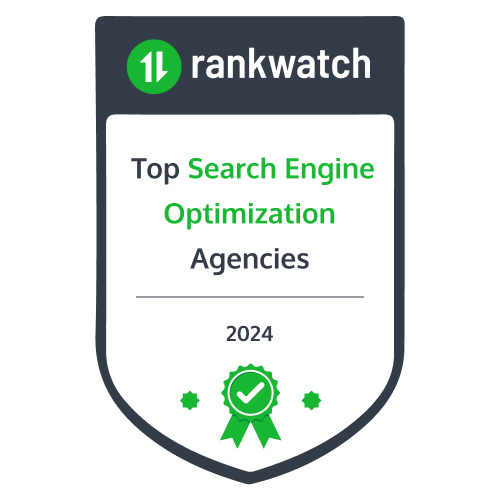Exploring the Connection Between Website Speed and SEO Rankings
Photo by Campaign Creators on Unsplash
Basic SEO isn’t difficult to grasp. But when you really dig deep into it, it gets more and more detailed. Just about everything you do on your website has the potential to affect your SEO, but most people don’t realize how important many of their backend processes are.
If you’re looking for ways to boost your SEO, you may be surprised to learn that there’s a connection between website speed and SEO rankings. Yes, it’s got nothing to do with your content… But this little factor can make a bigger difference than you think to your site’s ranking.
Thankfully, it’s not difficult to diagnose and fix. But it’s a good idea to understand why these two are closely linked, so you know exactly how one affects the other.
How Are SEO Rankings Determined?
Google’s ranking system is smartly designed to sort through an (almost) infinite amount of data and return relevant results in as fast a time as possible. Those who have a basic idea of what SEO entails will know that keywords are important, but there’s a lot more to it than just that.
Search engines look for multiple different things when searching at the speed of light:
- Meaning: This is all about the user request. Google analyzes the words in the search query to find out what exactly they mean.
- Relevance: Here’s where your site comes in. Keywords are particularly important in this step, because Google will crawl your site to pick out KWs that match (or closely match) the search query.
- Quality: Here Google’s EEAT principle comes into play. One of the biggest factors is quality backlinks, but the robustness of your copy is also relevant.
- Context: The search engine uses the Googler’s location and search history to select the information that’s most relevant to them.
- Usability: In many cases, Google prioritizes sites that are user-friendly, especially when all the search results are fairly similar.
From the combination of the information above, Google then ranks websites in order of what it perceives to be the most helpful and relevant to the search query.
The Role of Website Speed In SEO
So where does website speed fall into all of this? Well, it falls right under that last point above—usability. This section covers things like whether or not the site is mobile-friendly, how easy it is to navigate, and… Your page loading speed.
Scary statistic: if your web page doesn’t load within 3 seconds, more than half of your visitors will leave. Today’s internet users are wired for instant gratification, and if it’s taking too long to get the info they need, they know they can find it elsewhere.
The slower your site, the more your site’s user-experience is going to be negatively affected. When Google sees your bounce rate get higher and higher, it naturally assumes that users aren’t having a good experience on your site, and downgrades you accordingly.
Page loading speed is actually a set of metrics, not just one. Here’s what Google checks out when it crawls your site:
- Time to First Byte (TTFB): This is how long it takes for the page to start loading when someone clicks on its URL.
- First Contentful Paint (FCP): This refers to the amount of time it takes for the first element of the page to become visible to the visitor.
- Onload Time: The total time it takes to load the page fully.
These aspects fall under Google’s Core Web Vitals, which Google refers to every time it responds to a search query. If one or all of those is low… Then Google assumes your site provides a poor experience and adjusts your rank accordingly. This is why your page loading speed is important, and why it can affect your SEO rankings.
How to Improve Your Website Speed
The first step is to do a speed test. It might sound obvious, but you’d be surprised how many people forget it! You can’t track improvement if you don’t have the original metrics for comparison. Head over to Google Pagespeed Insights to check your site’s speed.
Once you know how your site is performing speed-wise, here are a few small, easy changes you can make to speed it up and boost your SEO in the process.
- Prioritize above-the-fold loading.
- Optimize images for speed (compress them wherever possible).
- Get rid of page redirects (takes a bit of time, but worth it!).
- Cache your pages and consider enabling browser caching.
- Use a CDN for content-heavy websites.
- Delete plugins you aren’t using.
- Reconsider your web hosting provider (choose one that’s optimized for performance).
Other Ways to Boost SEO
You should ALWAYS prioritize excellent content over things like website speed when it comes to SEO. Once you know you’ve got the content box ticked, you can check out your website speed, but it’s essential that you optimize your website content for SEO from the start.
Get these things right, and you can expect to see good organic search results from the very beginning. They may take some time, but we guarantee these steps will improve your rankings quickly.
- Do effective keyword research.
- Use your KWs in the right places.
- NEVER engage in keyword stuffing.
- Add related keywords to your page.
- Add alt text to images and videos.
- Get quality backlinks (guest posting is helpful).
- Aim to get Featured Snippets.
- Include FAQs in your blog posts or pages.
- Download an SEO plugin (Yoast SEO is excellent).
- If all else fails… Enlist the help of an SEO expert.
Conclusion
The connection between website speed and SEO rankings might not be apparent when you first start looking into SEO. But improving your site’s speed is actually relatively easy—most of these steps can be taken yourself without needing to involve your web host—so it’s definitely something you should be doing in order to boost your SEO.
If your website is your business and it plays a large role in bringing you income, then you should be doing everything you can to rank well. Don’t neglect “small things” like website speed… It could make a bigger difference than you realize!
About the Author
Paul Wheeler runs a web design agency that helps small businesses optimize their websites for business success. He aims to educate business owners on all things website-related, at his own website, Reviews for Website Hosting.





